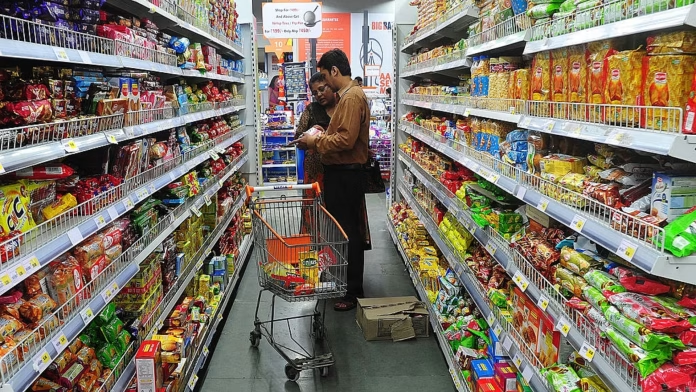Companies like Hindustan Unilever, Britannia, Parle, and Marico have observed a shift in their market dynamics. Smaller players are progressively encroaching upon their market share in sectors such as tea, detergents, oil, biscuits, and snacks. This trend has materialized as a result of moderated raw material prices, which have facilitated the entry of these smaller competitors into the market with products that are priced more affordably.
“In biscuits, we have been flattish, and the gainers of market share have been all local players. The local players, because of the pricing actions that they are taking in their small vicinity, have gained a little bit of market share,” Varun Berry, managing director at Britannia, told analysts.
“When the inflation is high, local players just walk away. And when things start to become more normalised, local players come into the market and start to operate large schemes for customers as well as consumers. So that’s what we are looking at currently.”
To illustrate, the rusk market is teeming with approximately 2,500 local competitors, whereas the snacking segment sees the dominance of over 3,000 smaller or regional players, encompassing almost 40% of the market share. According to companies, in times of deflation, these local adversaries tend to offer consumers greater value through additional quantity and demonstrate enhanced agility in swiftly introducing new products.
“There are thousands of local players in the snacking market especially in the extruded sub-segment. Since they are closer to the market and also understand local taste and flavour profile, they can be very agile in adapting to market conditions,” said Krishnarao Buddha, senior category head at Parle Products.
Over the years, local brands have steadily eroded the market shares of prominent consumer product companies, particularly in segments like soaps, detergents, hair oil, tea, and biscuits. Nevertheless, the disruptions caused by the pandemic and the subsequent inflation in crucial raw materials compelled numerous of these local brands to either cease operations altogether or significantly downsize their activities.
However, Hindustan Unilever (HUL) has noted a resurgence in the activity of small and regional players, a considerable number of whom had exited the market during the height of inflation. As an example, in the tea segment, these smaller players have experienced growth rates 1.6 times higher than their larger counterparts, while within the detergent bars category, regional participants have expanded at a rate three times faster.
“There are certain pockets of our portfolio, in mass segments and specific regions where we have seen a dip in market shares. However, our shares are ahead of what they were pre-inflation,” Ritesh Tiwari, chief financial officer at HUL, said during its earnings call.
Marico also reported a notable increase in activity within the bottom of the pyramid segment, primarily governed by smaller players. Market research agency Kantar examined 13 categories spanning personal care, home care, and food and beverages. Their analysis revealed that local enterprises, operating solely in one market, achieved a 13% growth during the year ending in April 2023, surpassing the 9% expansion observed by national brands in the same timeframe.
Nevertheless, regional labels with a presence in two to eight markets experienced a decline of 2%, whereas unbranded enterprises saw a more pronounced decrease of 5%.





